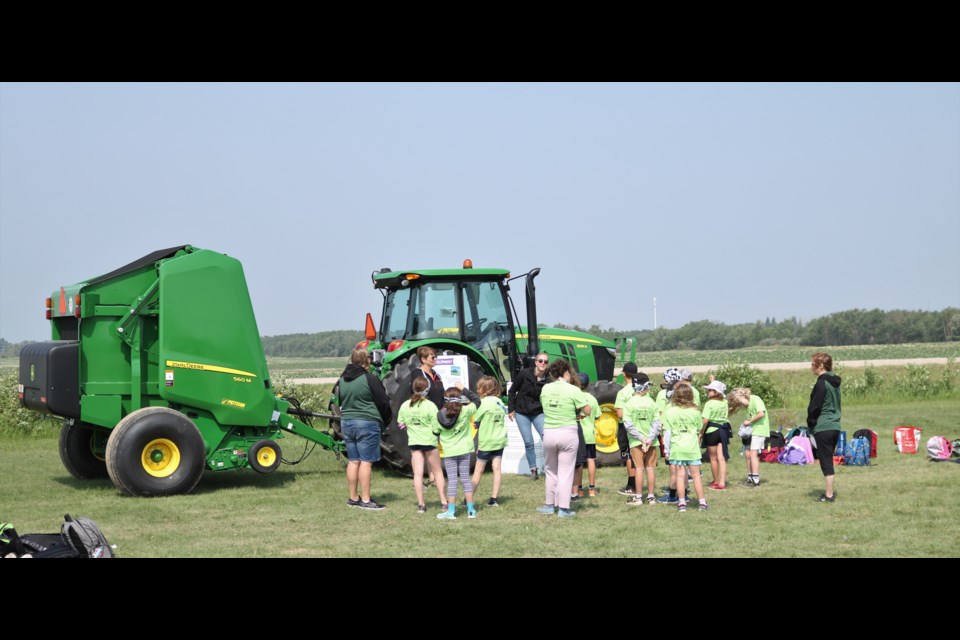YORKTON - More than 370 Yorkton and area Grade 3 students learned more about where their food comes from as they participate in the ‘Food Farm Program’ Tuesday and Wednesday.
Yorkton actually pioneered the idea of bringing students out in the field to learn about farming and food production when a ‘Pizza Farm’ concept was launched a decade ago, explained Agricultural Program Specialist Rachel Kraynick, with the provincial Ministry of Agriculture.
“Other places adopted the model,” she said, adding in Swift Current it became a ‘Burger and Fries Farm’ and in Prince Avert the focus was what farmers produce which goes into soup.
Now 10 years later the program is under the umbrella of Agriculture in the Classroom Sask. with 10 sites across the province hosting food farms.
“Now in general the whole program is called Food Farms,” said Kraynick.
Grade 3 students attend the event in spring to learn about planting season, then return in the fall as Grade 4 students to learn about harvest.
“So they see the complete cycle of farming, and they learn about how food hits their table,” said Kraynick.
The concept is simple enough, industry partners cooperate to set up a series of stations where students get to learn about farming and food, most with a hands-on learning element.
“Across the province it gets kids excited about agriculture,” said Kraynick, adding a key is that “it’s all hands-on learning in an outdoor environment.”
This year in Yorkton there were eight stations for the students attending from 14 different schools – including Canora, Langenburg, Stockholm and Melville to visit.
“There’s lots of partnerships from industry to make this happen,” said Kraynick.
Students had an opportunity to learn about the technology of farming – tractors, balers and drones – at a station manned by Pattison Ag and AgraTactics Agronomy.
The ‘Critter Dipping’ station manned by Ducks Unlimited staff had students using turkey basters to capture bugs in slough water which led to a discussion of the importance of wetlands and “how farmers really are stewards of the land,” said Kraynick.
Another station had students planting onions and potatoes with the help of FCC staff. The produce will be donated to local food banks in the fall.
The health of soil station had students burying cotton underwear that will be dug up in the fall.
“If it’s healthy soil the organisms will eat away all the cotton,” said Kraynick, so in the fall when students return and dig them up only the elastic band should be there.
A ewe and her lamb was the highlight of yet another station, while Sask Milk talked about dairy at one where students actually made butter.
Kraynick said her own son made toast as soon as he got home so he could taste the butter he has made.
Ultimately, the Food Farm program helps students learn about where their food comes from through actively participating in growing the ingredients for familiar foods like pizza, burgers, and fries.
Kraynick said Domino’s also needed a huge thank you supplying pizza for all the students and station staff.






